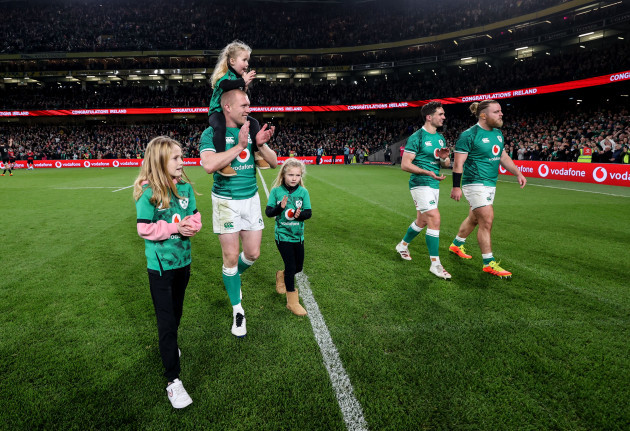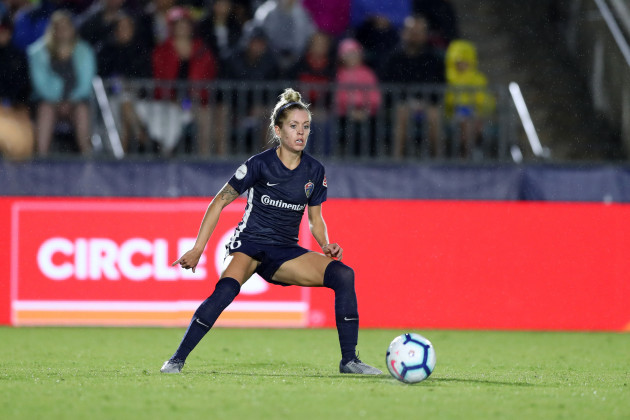1. “Hank has popped up every now and then,” Keith Earls says with a wry smile when I ask if he is still haunted by the dark side of his character. Earls has won 96 caps for Ireland but his fiercest battle as a rugby player has been with bipolar disorder. The 34-year-old, who has played 186 games for Munster since his debut in 2007, calls his destructive alter-ego “Hank”. It echoes the way in which, in Me, Myself & Irene, Jim Carrey played the part of a state trooper who, after a mental breakdown, developed a different personality called Hank.
“But I have a lot more good days than bad days,” Earls says at home in Limerick. “A couple of years ago I probably had one good day a month. Bipolar could affect me for weeks but now it’s one or two bad days every few months. But sometimes I get confident and say: ‘Look, I’m better. It’s all OK now.’ I fall into bad habits and all of a sudden your man Hank is back again.
“This season I opened a coffee roaster business in Limerick and I don’t like too much going on in my head. It can create havoc. So, setting that up, I found it tough. Now it’s important because the coffee business helps me relax and I know there’s something for me after rugby. But Hank pops up whenever my mind is cluttered or I’m knocked out of my routine.”
Earls is open and brave and he admits that “Hank the bastard is still lurking around, always looking to become a lodger in my head again.”
Game meets game as Donald McRae of The Guardian interviews Keith Earls.
2. Last month, the Spanish forward Ferran Torres posted a video of himself on Twitter doing light physical work at the training facility of his hometown club, Valencia. Torres had spent Christmas in a gentle form of limbo, waiting for his former club, Manchester City, to agree to sell him to Barcelona.
By Dec. 26, things had moved sufficiently that Torres wanted to let his followers know a move was imminent. “Getting ready at home … Valencia,” he wrote in a message posted alongside the video. And then, on a new line, a single phrase: “Here We Go!”
Those three words were intended as the digital transfer market’s equivalent to white smoke billowing from a chimney. They have come to mean that a deal is not just close, but completed. And they are indisputably Romano’s: They are his seal of approval, his calling card, what he refers to with just a hint of regret as his catchphrase.
That, more than the numbers of followers Romano has accrued, is the best gauge of his influence. Increasingly, to players, as well as fans, a transfer has not happened until it bears Romano’s imprimatur. (“Here We Go” is, in some cases, now used as a noun: Correspondents now regularly ask Romano if he is in a position to “give the here we go.”)
His power is now so great that he has, not entirely intentionally, made the leap from being merely a reporter covering soccer’s transfer market to something closer to a force within it. And in doing so, he has blurred the line between journalist and influencer, observer and participant.
(€) Fabrizio Romano, one of the biggest transfer journalists in soccer, speaks to Rory Smith for The New York Times.
3. Denise was having breakfast in her apartment in North Carolina on Thursday, September 30 last year when she saw the breaking news story about the head coach she was due to report to for training later that morning.
The Athletic published an investigation that included testimonies from former players Sinead Farrelly and Mana Shim who accused Paul Riley of sexual coercion, sexual harassment and inappropriate comments spanning multiple teams going back over a decade. By the end of the day, Riley – who denied the allegations in a statement to The Athletic – was sacked from his job.
“I felt confused, honestly, when it came out. I think my head was all over the place because you don’t expect that at all. I was just hurt like, emotional as well. I think all the girls were like that too,” Denise tells the Irish Independent from her apartment in North Carolina.
“You obviously trust that person and then you hear all these things coming out. It was really tough to process but I think once I had the girls, and we’re a very close team, we were all around each other for the next few weeks after what happened.”
(€) Denise O’Sullivan reflects on the abuse scandal at her club, North Carolina Courage, with Sinéad Kissane for The Irish Independent.
4. - What pandemic? All around the stands and the concourses, people have shed their masks throughout the pre-season competitions, like a veteran campaigner getting rid of a few winter pounds ahead of the league. If you truly believe this thing is over, then good for you. But many will not share your confidence. For those feeling more anxious than others, let’s get all the areas of the ground open and the ability to move into less densely populated areas.
- The league is the league. But this might just be the least league-iest league that ever leagued. For one, there are a number of big teams that need to get winning; we are looking at you Armagh and your record against the big dogs of Ulster football in particular. Dublin could be doing with the ‘let’s blow these culchies away’ attitude of yore if only to lift the sugar slump brought on by their first Championship defeat since 2014 last August.
With a few departures over winter, there will be a few lads trying to make their way onto the Tyrone team surprised at how damn hard the others are trying to lay down markers.
Declan Bogue gave 22 reasons to look forward to Allianz Football League 2022 in Friday’s Irish Examiner.
5. If and when the time comes to cast Steve Borthwick’s biopic, it might not be Brad Pitt that lands the lead role. But the remarkable Leicester Tigers turnaround, and the razor-sharp recruitment driving it, is more than a little evocative of Moneyball.
After inheriting a bloated squad in the summer of 2020, Borthwick has leant on data science to cut away dead wood, streamline the wage bill, survey the market and pick up gems amid shrinking finances. Although there are many strands to the club’s resurgence – not least the coaching of his charismatic backroom team and the emergence of young stars like Freddie Steward – such a rebuild has been critical.
It is in this respect that Borthwick is channelling Billy Beane, the former general manager of the Oakland Athletics baseball team played by Pitt in the 2011 film of Michael Lewis’ book. Guided by data, he is daring to think differently while coveting less-celebrated attributes.
(€) ‘How data science and Moneyball rebuilt Leicester Tigers – and could spark a recruitment revolution,’ by The Telegraph’s Charlie Morgan.



